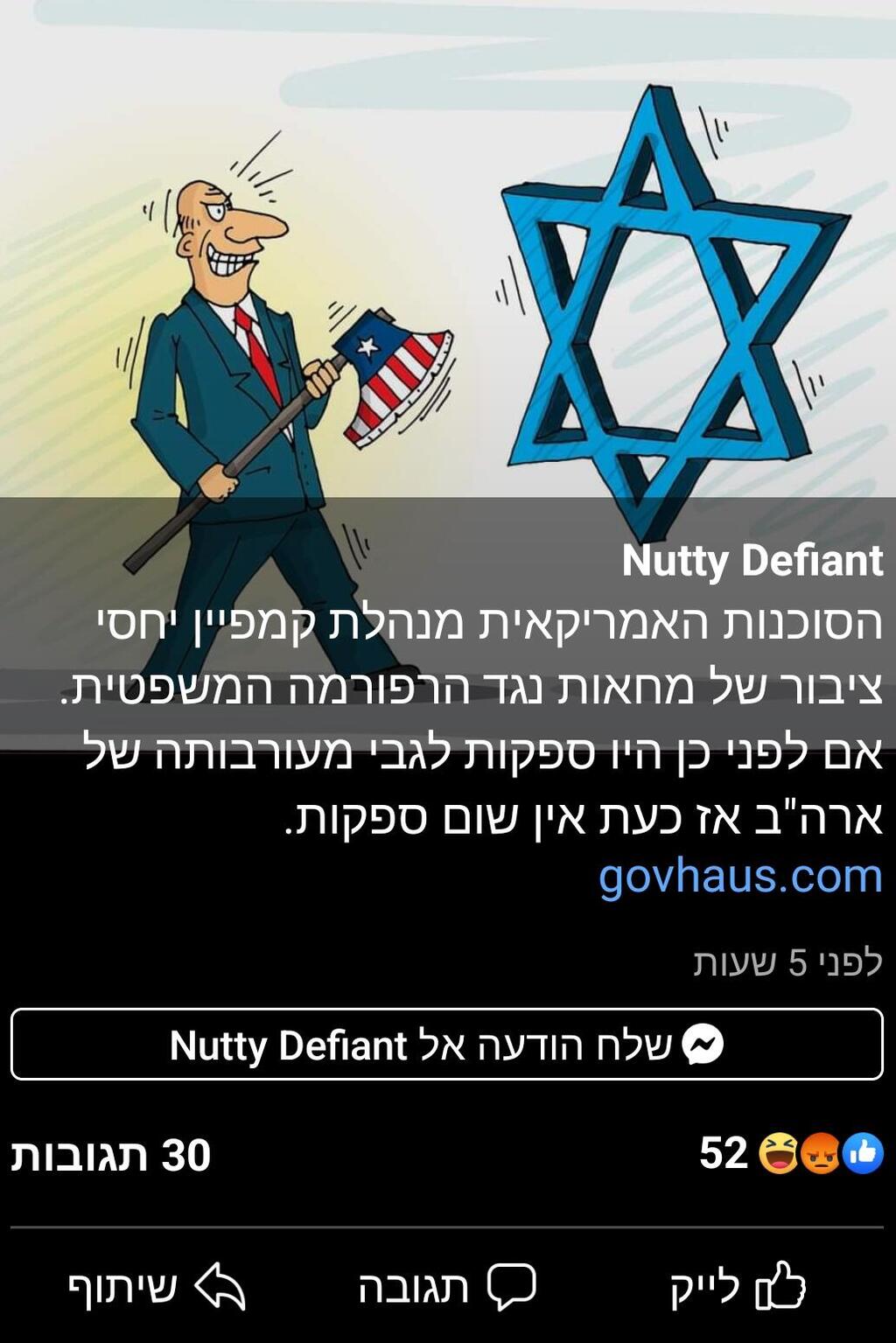Getting your Trinity Audio player ready...
Posts spreading fake news and incitement against Israel and the United States continue to appear regularly on Facebook's feed, Ynet has learned. This phenomenon is a continuation of the campaign by fake news distribution networks to impersonate legitimate Israeli news sites. Although Meta pledged to act vigorously to prevent the spread of fake news, the task has proved to be challenging. In addition, most of the distribution of these posts is apparently carried out by Facebook's own internal advertising mechanism, through which it collects money to distribute the posts. It is not clear why the social network does not perform a preliminary check of the sponsored content - which could prevent their publication.
More stories:
The current wave of the Russian incitement and smear campaign appears designed to spread false reports and news stories against Ukraine or countries that support it. But now the issues have expanded and are also inciting against the protest against the judicial overhaul led by the Israeli government.
One such post, for example, reads: "The American agency is running a public relations campaign of protests against the judicial reform. If before there were doubts about the involvement of the US, then now there are no doubts." The tone and content try to incite Israelis against the US by claiming that the Democratic administration is behind the protest and even finances it. Of course, there is no proof of this and the authors of the post even refrained from indicating which American body is assisting in this – although "the agency" is a well-known code word for the American intelligence agency, the CIA.
A web surfer named Zvi sent Ynet recent examples of these sponsored posts. He says they appear in his feed from time to time and, according to the responses he has seen, quite a few of the commenters support the content that appears in them. "At first it was only in Russian, then it started in Hebrew as well. I speak Russian and I also saw the pages in Russian," he told Ynet. "The links just pop up in the feed because it's sponsored, apparently my profile fits their promotion definition. I also see the same people in the comments, which means there are other people to whom it pops up all the time."
The advertisement settings appear intended for Israelis who also speak Russian, which explains why they don't always appear in the feed of Israelis who only speak Hebrew. However, a few months ago Hebrew speakers were also occasionally exposed to this content. According to Facebook, these are not campaigns targeting Israelis only. In June, a similar campaign was revealed in France. Campaigns of this kind have also been exposed in the US in the past.
The phenomenon is very reminiscent of the disinformation campaign run by Russia in the 2016 presidential elections in the US. The claim of the American authorities at the time was that it was blatant interference by Russia in the elections and at that time Meta, the parent company of Facebook, undertook to act to prevent the distribution of such content.
Ilan Sokol, head of the research team at Cybereason, explained to Ynet that "this is a funded campaign on Facebook, which is carried out by the Russian government. We have identified a network of fictitious users who use a lot of resources in order to target Israelis and influence public opinion. The links lead to websites impersonating news websites containing fake content, which continues the Russian narrative regarding Ukraine and US-Israel relations. In addition, the 'news' interferes in internal Israeli matters such as the judicial reform. In addition, we also identified a campaign on the social network X (formerly known as Twitter), which is directly related to the Facebook campaign of fake users who responded in proper Hebrew to influential profiles and spread the Russian narrative along with links to the fake articles."
2 View gallery


Hebrew fake news post about how US supports and sponsors protests in Israel
(Photo: Facebook)
According to Sokol, it is recommended to pay attention to the identity of the advertiser, whether the profile is a long-time Facebook user, whether its number of followers is sufficient enough to be credible, and whether the profile has published before and appears to be an advertiser of a reliable organization. If you check the real username of the profile and see that it mainly consists of a hash of meaningless letters and numbers, it should raise suspicion. The impersonating sites themselves are almost undetectable, except by paying attention to the address, which is often very similar to the real addresses of the news sites. We also recommend not to distribute and share such content without a thorough examination of their source. Many protest organizations distribute legitimate posts on Facebook or X.
Facebook has not responded to the specific allegations, but said in a statement that "we forwarded the content you sent to our global teams and the entire content was removed." To our questions about how Facebook allows sponsored posts to be published despite this issue, and whether there should be a control system for sponsored content, and can anyone upload what they want to the advertising system as long as they pay for the advertising and no one checks - we received no answers.


